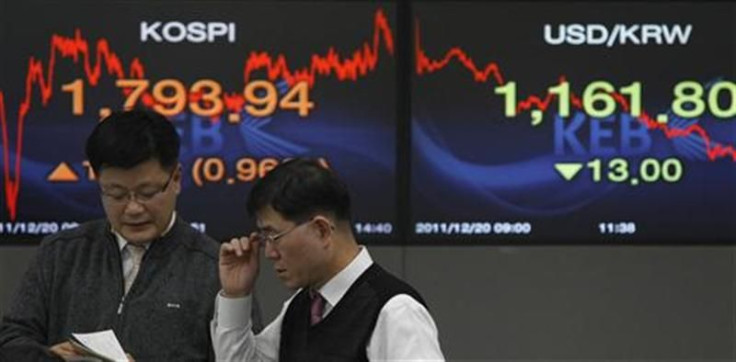South Korea?s Industrial Production Contracts In June

South Korea's industrial output declined in June from the previous month with exports decreasing and domestic demand continuing to be weak.
According to the report by Statistics Korea, the country's industrial production declined to 0.4 percent in June down from a rise of 1.3 percent in May. The industrial output report comes after last week data released by the Bank of Korea (BoK) showed that the country's economic growth slowed down to 0.4 percent in the second quarter compared to the previous three months, weighed down by the faltering global economy and the intensifying debt crisis in the euro zone.
It was reported last month that the country's consumer confidence fell in June as compared to May. The BoK's consumer confidence index, which is an indication of consumers' overall economic outlook, dropped to 101 in June down from 105 in May.
Earlier this month, South Korea's central bank cut the interest rate for the first time in over three years in a move to stimulate the faltering economic growth of the country. The BoK said that it had decided to cut the interest rate by 25 basis points to 3 percent. This easing in the monetary policy was seen as a much-needed thrust to boost liquidity in the financial system and help the economy regain its growth momentum.
While cutting the interest rate, the central bank said that growth was likely to be weaker than it had expected, with a negative output gap persisting for long. South Korea's economic growth forecast was reduced by the central bank to 3 percent this year, down from 3.5 percent prediction made in April.
With the euro zone expected to head into a deep recession in the second half of the year, conditions faced by South Korea's exporters are unlikely to improve soon. Exports to the EU have been falling and shipments to the U.S. and China have also been disappointing. The business sentiment too is not expected to be positive as a result of the debt crisis faced by the euro zone, which in turn will affect the job market.
South Korea's export-led growth model makes business investment sensitive to the deterioration in the global outlook. The central bank is likely to act again soon and announce another 25basis points (bps) rate cut this quarter.
© Copyright IBTimes 2024. All rights reserved.











